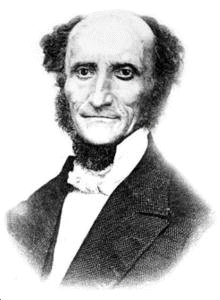May 7 is the 127th day of the year (128th in leap years) in the Gregorian calendar. There are 238 days remaining until the end of the year.
Holidays
- Christian feast day:
- Defender of the Fatherland Day (Kazakhstan)
- Dien Bien Phu Victory Day (Vietnam)
- Radio Day, commemorating the work of Alexander Popov (Russia, Bulgaria)
History
In 351, The Jewish revolt against Constantius Gallus breaks out. After his arrival at Antioch, the Jews begin a rebellion in Palestine.
In 558, In Constantinople, the dome of the Hagia Sophia collapses. Justinian I immediately orders that the dome be rebuilt.
In 1274, In France, the Second Council of Lyon opens to regulate the election of the Pope.
In 1429, Joan of Arc ends the Siege of Orléans, pulling an arrow from her own shoulder and returning, wounded, to lead the final charge. The victory marks a turning point in the Hundred Years’ War.
In 1487, The Siege of Málaga commences during the Spanish Reconquista.
In 1664, Louis XIV of France begins construction of the Palace of Versailles.
In 1697, Stockholm‘s royal castle (dating back to medieval times) is destroyed by fire. It is replaced by the current Royal Palace in the eighteenth century.
In 1718, The city of New Orleans is founded by Jean-Baptiste Le Moyne, Sieur de Bienville.
In 1763, Pontiac’s War begins with Pontiac‘s attempt to seize Fort Detroit from the British.
In 1794, French Revolution: Robespierre introduces the Cult of the Supreme Being in the National Convention as the new state religion of the French First Republic.

In 1815, Jabez Bowen, American colonel and politician, 45th Deputy Governor of Rhode Island (b. 1739) dies. He was an American shipper and politician. He was a militia colonel during the American Revolutionary War, and served as Deputy Governor of Rhode Island and Chief Justice of the Rhode Island Supreme Court. He was a member of the Providence town council from 1773-1775, and was a representative in the General Assembly in 1777. During the American Revolution, Bowen served in the Providence militia from 1774-1777, holding the rank of colonel of the First Regiment of Providence County from 1776-1777. He served under William West. Bowen was Deputy Governor of Rhode Island from 1778-1779, and from 1781-1786. He was a delegate to the Annapolis Convention in 1786 and the Constitutional Convention in 1790. He served as a Superior Court judge in 1776, and became Chief Justice in 1781.Bowen was an ardent federalist (pro-Constitution) supporter, and was on the city committee which negotiated a peaceful end to William West‘s antifederalist protest on the Fourth of July in 1788. Bowen served as Chancellor of Brown University from 1785 until his death.
In 1824, World premiere of Ludwig van Beethoven‘s Ninth Symphony in Vienna, Austria. The performance is conducted by Michael Umlauf under the composer’s supervision.
In 1832, The independence of Greece is recognized by the Treaty of London. Otto of Wittelsbach, Prince of Bavaria is chosen king.
In 1840, The Great Natchez Tornado strikes Natchez, Mississippi killing 317 people. It is the second deadliest tornado in United States history.
In 1846, The Cambridge Chronicle, America’s oldest surviving weekly newspaper, is published for the first time in Cambridge, Massachusetts
In 1847, The American Medical Association is founded in Philadelphia.
In 1864, American Civil War: The Army of the Potomac, under General Ulysses S. Grant, breaks off from the Battle of the Wilderness and moves southwards.
In 1864, The world’s oldest surviving clipper ship, the City of Adelaide is launched by William Pile, Hay and Co. in Sunderland, England, for transporting passengers and goods between Britain and Australia.
In 1887, C. F. W. Walther, German-American theologian (b. 1811) dies. He was the first President of the Lutheran Church–Missouri Synod and its most influential theologian. He is commemorated by that church on its Calendar of Saints on May 7. He has been described as a man who sacrificed his homeland, his health and nearly his life for the freedom to speak freely, to believe freely, and to live freely. He was dedicated to his Church and the faith for those he loved.
In 1895, In Saint Petersburg, Russian scientist Alexander Stepanovich Popov demonstrates to the Russian Physical and Chemical Society his invention, the Popov lightning detector — a primitive radio receiver. In some parts of the former Soviet Union the anniversary of this day is celebrated as Radio Day.
In 1915, World War I: German submarine U-20 sinks RMS Lusitania, killing 1,198 people including 128 Americans. Public reaction to the sinking turns many formerly pro-Germans in the United States against the German Empire
In 1915, Japanese 21 Demands Ultimatum to China (Commemorated as National Day of Humiliation)
In 1920, Kiev Offensive: Polish troops led by Józef Piłsudski and Edward Rydz-Śmigły and assisted by a symbolic Ukrainian force capture Kiev only to be driven out by the Red Army counter-offensive a month later.
In 1920, Treaty of Moscow: Soviet Russia recognizes the independence of the Democratic Republic of Georgia only to invade the country six months later.
In 1920, The Art Gallery of Ontario, in Toronto, opens the first exhibition by the Group of Seven.
In 1937, Spanish Civil War: The German Condor Legion, equipped with Heinkel He 51 biplanes, arrives in Spain to assist Francisco Franco‘s forces.
In 1940, The Norway Debate in the British House of Commons begins, and leads to the replacement of Prime Minister Neville Chamberlain with Winston Churchill three days later.
In 1942, During the Battle of the Coral Sea, United States Navy aircraft carrier aircraft attack and sink the Imperial Japanese Navy light aircraft carrier Shōhō. The battle marks the first time in the naval history that two enemy fleets fight without visual contact between warring ships.
In 1945,World War II: General Alfred Jodl signs unconditional surrender terms at Reims, France, ending Germany’s participation in the war. The document takes effect the next day.
In 1946, Tokyo Telecommunications Engineering (later renamed Sony) is founded with around 20 employees.
In 1948, The Council of Europe is founded during the Hague Congress.
In 1951, Warner Baxter, American actor and singer (b. 1889) dies of pneumonia and was interred in Forest Lawn Memorial Park Cemetery in Glendale, California. He was an American actor, known for his role as The Cisco Kid in In Old Arizona (1929), for which he won the second Academy Award for Best Actor in the 1928–1929 Academy Awards. He frequently played womanizing, charismatic Latin bandit types in westerns, and played The Cisco Kid or a similar character throughout the 1930s, but had a range of other roles throughout his career. Warner Baxter started his movie career in silent film. Baxter’s most notable silent films are The Great Gatsby (1926) and The Awful Truth (1925). When talkies came out, Baxter became even more famous. Baxter’s most notable talkies are In Old Arizona (1929) 42nd Street (1932), Slave Ship (1937), Kidnapped (1938), and the 1931 20 minute all-star ensemble short film, The Stolen Jools. In the 1940s he was well known for his recurring role as Dr. Robert Ordway in the Crime Doctor series of 10 films.
When not acting, Baxter was an inventor and in 1935 co-created a revolver searchlight which would illuminate a target and allow a gunman to shoot at it in the dark. He later developed a radio device that would allow emergency crews to change traffic signals from two-blocks away and allow them to safely pass through intersections. He financed its installation at an intersection in Beverly Hills in 1940

In 1952, The concept of the integrated circuit, the basis for all modern computers, is first published by Geoffrey Dummer.
In 1954, Indochina War: The Battle of Dien Bien Phu ends in a French defeat and a Vietnamese victory (the battle began on March 13).
In 1960, Cold War: U-2 Crisis of 1960 – Soviet leader Nikita Khrushchev announces that his nation is holding American U-2 pilot Gary Powers.
In 1964, Pacific Air Lines Flight 773, a Fairchild F-27 airliner, crashes near San Ramon, California, killing all 44 aboard; the FBI later reports that a cockpit recorder tape indicates that the pilot and co-pilot had been shot by a suicidal passenger.
In 1974, West German Chancellor Willy Brandt resigns.
In 1986, Canadian Patrick Morrow becomes the first person to climb each of the Seven Summits.
In 1989, Guy Williams, American actor (b. 1924) dies. He was an American actor and former fashion model, who played swashbuckling action heroes in the 1950s and 1960s, but never quite achieved movie-star status despite his appearance (including hazel eyes, 6′ 3″ (1m90) height, and 190 lb (86 kg) weight) and charisma, which helped launch his early successful photographic modeling career. Among his most prominent achievements were two memorable TV series: Zorro, in the title role and Lost in Space, as the father of the Robinson family. The sci-fi TV program was highly popular, noted for the design of the sleek silver spacesuits, which Guy Williams wore in many publicity photos (see image at right). His hobbies included: astronomy, chess, music (mostly classical), fencing, tropical fish, and sailing: he owned a 40-foot (12m) ketch called The Oceana. In the late 1970s, Guy Williams retired near Buenos Aires, Argentina, where he died of a brain aneurysm in 1989.
In 1992, Michigan ratifies a 203-year-old proposed amendment to the United States Constitution making the 27th Amendment law. This amendment bars the U.S. Congress from giving itself a mid-term pay raise.
In 1992, The Space Shuttle Endeavour is launched on its first mission, STS-49.
In 1992, Three employees at a McDonald’s Restaurant in Sydney, Nova Scotia, Canada, are brutally murdered and a fourth permanently disabled after a botched robbery. It is the first “fast-food murder” in Canada.
In 1994, Edvard Munch’s iconic painting The Scream is recovered undamaged after being stolen from the National Gallery of Norway in February.
In 1998, Mercedes-Benz buys Chrysler for US$40 billion USD and forms DaimlerChrysler in the largest industrial merger in history.
In 1999, Pope John Paul II travels to Romania becoming the first pope to visit a predominantly Eastern Orthodox country since the Great Schism in 1054.
In 1999, Kosovo War: In Federal Republic of Yugoslavia, three Chinese citizens are killed and 20 wounded when a NATO aircraft bombs the Chinese embassy in Belgrade.
In 1999, In Guinea-Bissau, President João Bernardo Vieira is ousted in a military coup.
In 2000, Vladimir Putin is inaugurated as president of Russia.
In 2002, An EgyptAir Boeing 737-500 crashes on approach to Tunis–Carthage International Airport, killing 14 people
In 2002, A China Northern Airlines MD-82 plunges into the Yellow Sea, killing 112 people.

In 2004, American businessman Nick Berg is beheaded by Islamic militants. The act is recorded on videotape and released on the Internet. He was an American freelance radio-tower repairman who went to Iraq after the United States’ invasion of Iraq. He was abducted and beheaded according to a video released in May 2004 by Islamist militants in response to the Abu Ghraib torture and prisoner abuse involving the United States Army and Iraqi prisoners. The CIA claimed Berg was murdered by Abu Musab al-Zarqawi. The decapitation video was released on the internet, reportedly from London to a Malaysian-hosted homepage by the Islamist organization Muntada al-Ansar.
In 2007, Israeli archaeologists discover the tomb of Herod the Great south of Jerusalem.
In 2009, Over 100 New Zealand Police officers begin a 40-hour siege of a lone gunman in Napier, New Zealand.
In 2013, 27 people are killed and more than 30 injured, when a tanker truck crashes and explodes outside Mexico City.




